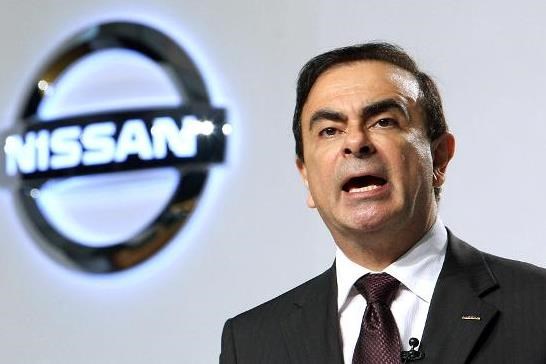Former Nissan chairman Carlos Ghosn has had his bail interrupted as Japanese prosecutors re-arrested him once again amid allegations that he caused the carmaker £3.8 million in losses.
Ghosn has branded his re-arrest while on bail – following 108 days spent in custody – as "outrageous and arbitrary" as his lawyer told a news conference they would strongly appeal against the latest arrest, the BBC reported.
Reports by Japanese broadcaster NHK said that Tokyo prosecutors entered Ghosn's home before 06:00 local time and took him to their office on suspicion he had misappropriated Nissan funds for personal use.
Ghosn's lawyer said it was almost unheard of to arrest someone after being released on bail.
“I am innocent of the groundless charges and accusations against me," Ghosn said in a statement.
Ghosn had been released from prison on March 5 after being granted bail, the Tokyo district court having set bail at one billion yen (£6.8m)
In December Ghosn had been re-arrested and charged on allegations of ‘aggravated breach of trust’ just a day after the Tokyo District Court denied requests from prosecutors to extend Ghosn’s detention in relation to other charges.
That charge related to losses incurred by Ghosn's personal asset management company, which were allegedly passed on to Nissan, and may have scuppered his hopes of applying for bail and is expected to extend his period of custody, through Christmas, for a further 10 days.
Prosecutors alleged that Ghosn transferred personal losses totalling 1.85 billion yen (£13.14m) to Nissan in October 2008, which were supposedly incurred from activities including currency derivative transactions.
In moving the transaction contract back to the asset management company between June 2009 and March 2012, it has also been alleged, £11.6m was sent from a Nissan subsidiary to a company owned by another individual, Japanese media has reported.
In its report into the latest developments in the Ghosn case at the time, Bloomberg said that he new allegations would be in violation of Japan’s Companies Act and were seen as “a more serious charge than under-reporting income”, part of the Financial Instruments and Exchange Act.
It said that Japan’s Companies Act states that such a charge could carry a maximum prison sentence of up to 10 years.


















Login to comment
Comments
No comments have been made yet.